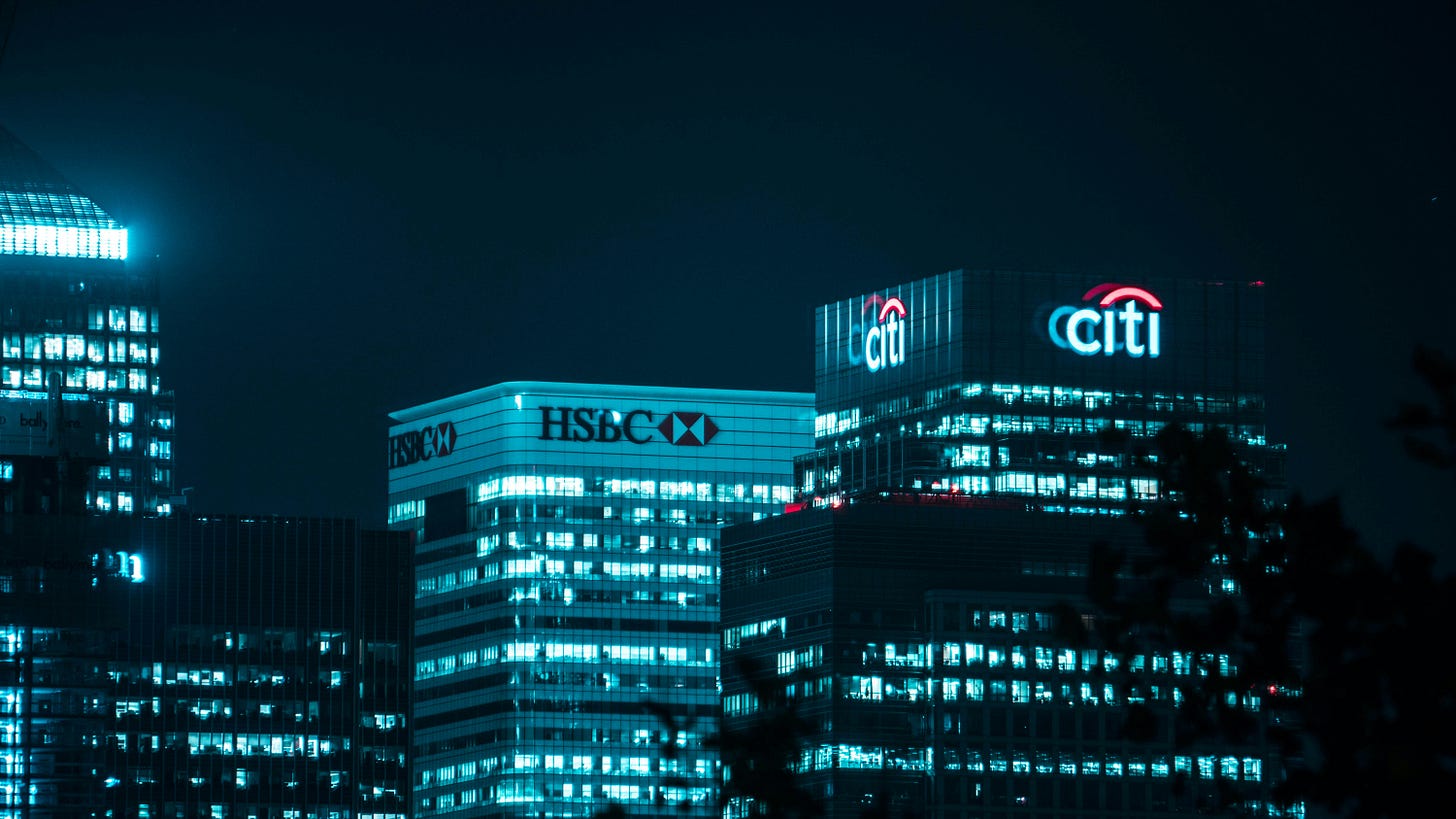The Rise of "Debanking" in America
From high-profile Americans to everyday Canadians, the weaponization of financial systems is happening right now.
“What would you do if one day you woke up and discovered that your bank account had vanished?” asked Rupa Subramanya of The Free Press at her talk at Memorial Union on the “debanking of America.”
The event, hosted by the Center for Research on the Wisconsin Economy on October 28th, examined how financial institutions are increasingly being weaponized against their own clients. This phenomenon is called “debanking.”
If a client is determined to be “too risky” or “too controversial,” they can have their bank accounts closed without warning, often just receiving an email stating “your status has changed,” and they don’t get an explanation. Under the Bank Secrecy Act, banks are not required to explain their reasoning for this type of account closure, leaving clients in the dark about what their “suspicious activity” may have been.
This isn’t just a hypothetical, as Subramanya explained; it has happened to high-profile individuals such as Melania Trump, Barron Trump, and a former member of Justin Trudeau’s security detail, Daniel Bulford.
Another notable example is Sam Brownback, a former Republican Senator, who founded the nonprofit National Committee for Religious Freedom (NCRF). When NCRF opened an account at J.P. Morgan Chase, it was shut down just three weeks later. Subramanya explained how the bank told Brownback they would consider reinstatement only if “NCRF discloses donors, provides a list of intended fund recipients for the next election cycle, and the full details of how the NCRF would select pro-religious freedom candidates to support,” she goes on to say, “this isn’t compliance, this is coercion.”
At first glance, this may just seem like a conservative issue, but it affects people across the board. “Christian charities have been debanked, [and] Muslim Americans can get tagged as high risk. It’s actually a very inclusive discrimination. It cuts across ideology and faith,” Subramanya added.
“‘Know your customer’ or ‘KYC’ sounds pretty benign until every customer becomes a suspect,” Subramanya said as she traced the roots of this trend back to 2013. “Operation Chokepoint, under President Barack Obama, pressured banks to cut ties with ‘risky legal industries’ [which] are constitutionally protected activities, so they went after payday lenders, people who sold guns, and online casinos. The idea was to stop fraud, but the effect was to teach banks that when the government hints at something, you obey.”
Subramanya resides in Canada and brought up an example close to home for her. In 2022, there was a series of protests by truckers opposing the COVID-19 vaccine mandates and government overreach. She explained how Canada invoked the Emergencies Act, a measure meant to be used only when a situation seriously threatens the lives or safety of Canadian citizens. One of the responses the government decided was necessary was “freezing the bank account of the protestors who donated money to the cause. So, it could be your grandmother who donated $50; it could be anybody. Banks complied instantly; some didn’t even wait for the court orders,” she said, emphasizing the extremity of the situation. Subramanya’s response to this is that “tools are meant for building things, not punishing dissent.”
Subramanya recounted her own experience during the protests. When she went to observe them on her street, an officer told her that she had “no right to be walking around here” — in her own neighborhood.
She went on to say that what Canada created was “a western-style version of China’s social credit system, a financial scoring of loyalty, where access to your own money depends on political alignment or ideological conformity. You don’t need to jail people if you can cut off their debit card. You don’t need to censor speech if you can block the donations that fund it. You don’t need to outlaw opposition if you can make living as an opponent impossible.”
Getting locked out of your account may seem like an inconvenience, but it can be way more. For Bulford, it almost ruined his family. He and his wife were both debanked from three different accounts after attending the truckers’ protest in 2022. The refunds take weeks, sometimes months, to come in, and they were unsure how to support their three kids and pay their mortgage. They had to rely on the generosity of family and friends to afford to live.
Her solution: “We need more transparency. If a bank finds that an account poses a risk, I think banks have an obligation to tell you why... and then you need a more decentralized ecosystem, like credit unions, community banks, where ideological chokepoints would be harder. And you need to have due process.” She then encouraged people who have been debanked to speak up and have courage so that this is not ignored, and the seriousness of the situation is heard.
Subramanya explained how it was extremely difficult to find data about this because most people were too afraid to go on record in case they were debanked yet again. “If we accept that governments or corporations get to decide who gets to bank, we essentially accept conditional citizenship,” she warns.
From high-profile Americans to everyday Canadians, Subramanya highlighted that the weaponization of financial systems is not a hypothetical; it is happening right now. Her message was simple: protecting access to banking isn’t just about money, it is about defending freedom itself.




